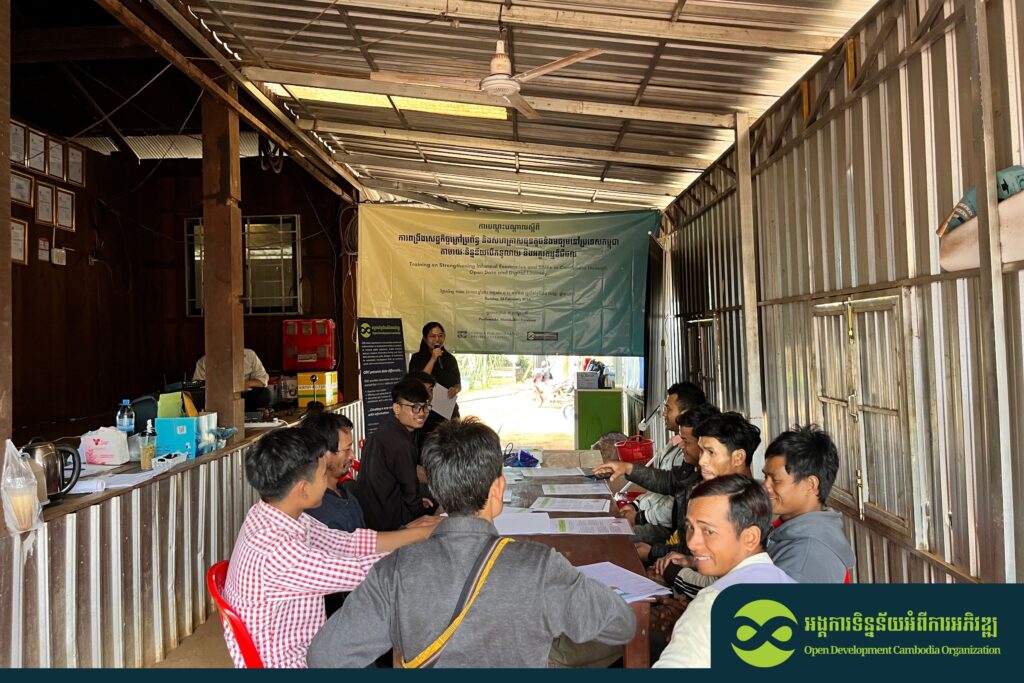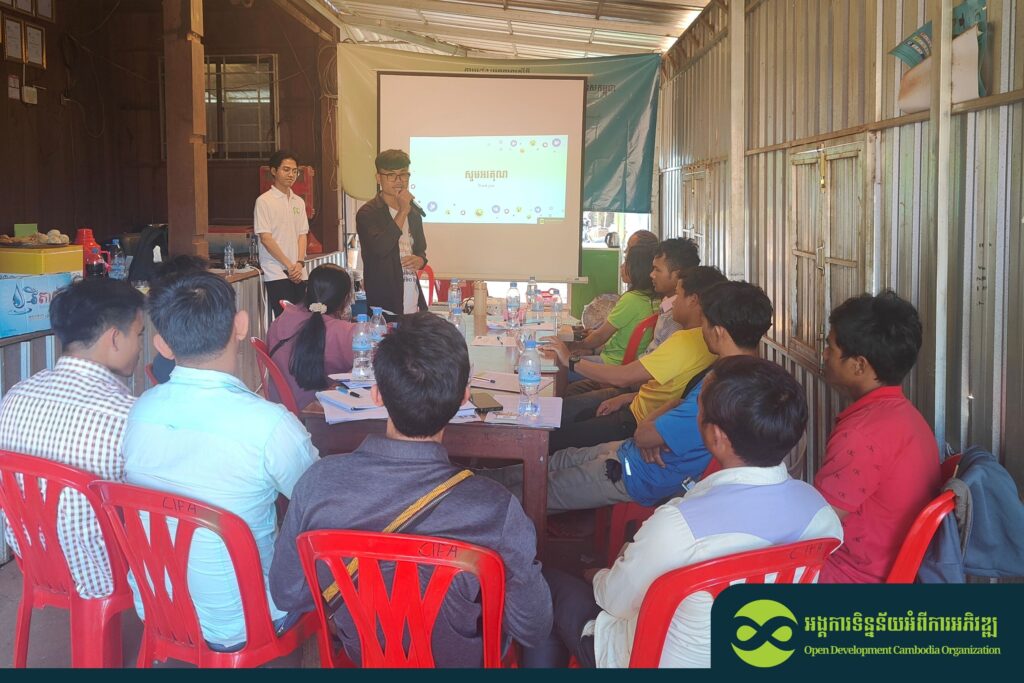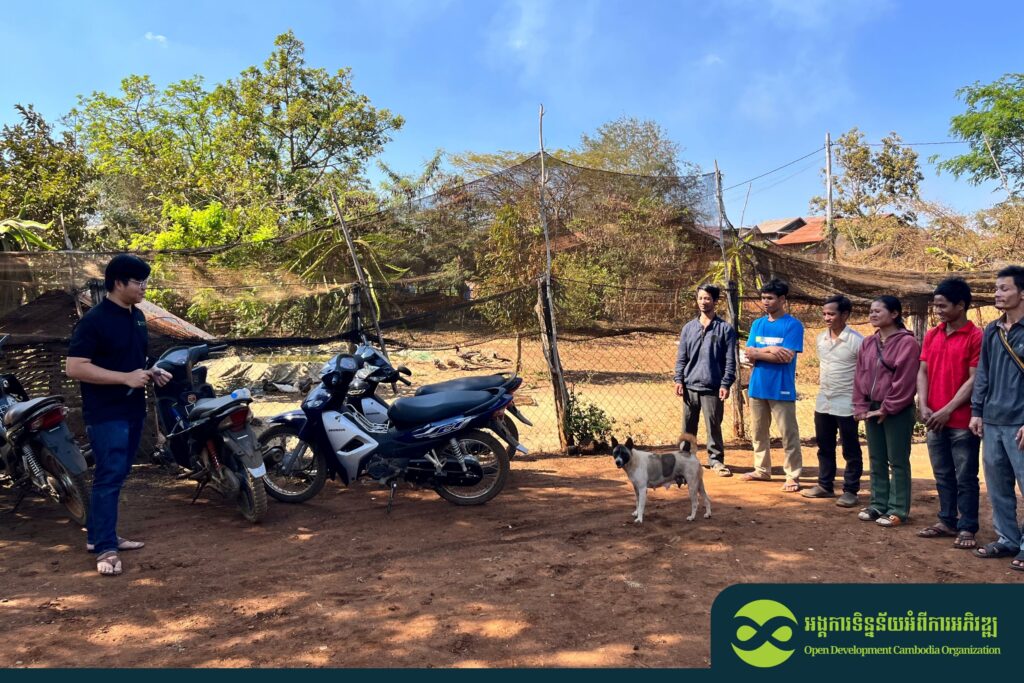ODC attracted local people in Mondulkiri to join a training on business and digital literacy
On 25 February 2024, Open Development Cambodia Organization (ODC) organized a comprehensive training session as part of the project “Strengthening Informal Economies and SMEs in Cambodia through Open Data and Digital Literacy,” funded by the Center of International Private Enterprise (CIPE). The training took place at the Cambodia Indigenous Friendship Association (CIFA) office in Bu Sra village, Bu Sra commune, Pechreada district, Mondulkiri province and attracted 13 indigenous people, including two females, engaged in informal economies within the agriculture, arts, and tourism sectors. It is notable that Mondulkiri is one of the four geographical locations for project implementation, and this marks the second training conducted following a successful training session in Phnom Penh on 22 December 2023.
This initiative aims to increase awareness about the private sector, empower women and indigenous peoples to conduct business, promote educational resources related to business and laws regulating the private sector, and improve democracy through social inclusion, meaning offering spaces for them to engage and share their interest and concerns regarding the private sector in Cambodia. The session commenced with an opening remark by the Program and Partnership Manager of ODC, discussing the training’s purpose and expected outcomes. This was followed by a project presentation outlining the rationale, objectives, activities, and opportunities involving SMEs and informal economies in Cambodia.
The training covered three main topics. Ms. SREY Nak, Business Development Partner & CSR Specialist at Sarana Law Firm, presented the first topic on “Business Management and Corporate Social Responsibility (CSR)”. The following topics were “Social Media Content Creation,” presented by Mr. Nay Maneth, Communications Manager of ODC, and “Digital Safety Tips,” presented by Mr. Sam An Mardy, IT and Website Manager.
In the session, the participants demonstrated particular interest in topics such as business models and leadership styles. The presenter quizzed the participants on the aspects to consider when running a business, allowing them to share an example of operating a motorcycle cleaning service in the community. Specifically, participants had the opportunity to apply the lessons learned to the current state of business development in the community. For instance, they reflected on community and social demands, personal preferences, knowledge and expertise, potential return on investment, as well as consulting with experts on business plans. Furthermore, they explored the integration of their businesses with social media platforms, where they could generate more income through promoting their agricultural products, eco-tourism services and indigenous videos beyond the local community. They also received tips on how to effectively market their products and services through compelling content creation, leveraging engaging social media platforms such as TikTok. Additionally, they expressed a keen interest in enhancing security and privacy on the internet and personal devices. Before the Digital Safety Tips session, the speaker conducted a game to measure their seriousness regarding their personal devices and online exposure. The game involved assessing the strength of their passwords and their preference for using public WiFi.
Before the training began, participants were given a pre-test to assess their understanding of each training topic. A post-test was administered after the training to measure improvements. Additionally, the ODC team facilitated the distribution of training evaluation forms to participants before concluding the session. These evaluations are extremely useful for assessing the effectiveness and fulfillment of the training objectives, especially for improving future training sessions. The participants were also invited to join a Telegram group, serving as a channel for receiving up-to-date information and knowledge about SMEs and informal economies alongside fellow participants in Phnom Penh.





